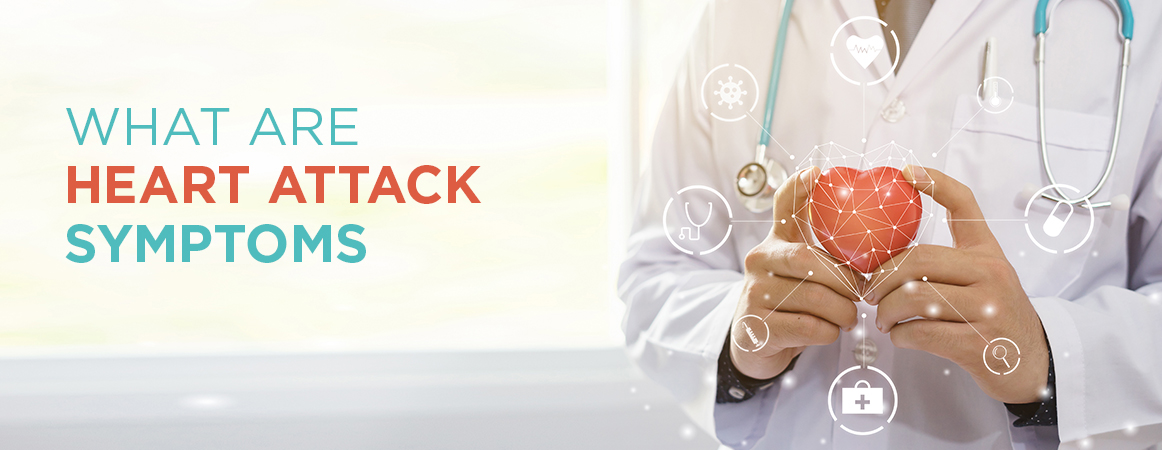
A heart attack is a medical emergency in which the heart muscle is deprived of oxygen due to blocked blood vessels. It is a serious condition that can lead to death if not treated quickly. Knowing the signs and symptoms of a heart attack is important because it can help you take immediate action to save someone’s life.
A heart attack is a potentially life-threatening medical emergency, and it is important to be aware of the symptoms. Heart attack symptoms can vary between individuals, but some of the more common symptoms include chest pain or discomfort, shortness of breath, nausea, cold sweats, and lightheadedness. It is important to be aware of these symptoms and to seek medical attention immediately if they occur, or consult a cardiac surgeon in Karachi at MMI.
The symptoms of heart attacks can vary, but they are usually quite severe and require immediate medical attention. It is important to recognize the symptoms of a heart attack and seek help as quickly as possible.
For many people, the signs and symptoms of a heart attack can be sudden and overwhelming. A heart attack happens when there is a blockage in the coronary artery, which supplies oxygen-rich blood to the heart.
Here, we discuss the most common symptoms of a heart attack and how to recognize them.
Chest pain or discomfort is a heart attack’s most typical symptom. This pain can range from mild to severe and may feel like pressure, fullness, squeezing, or tightness in the chest area.
The pain may last for a few minutes or come and go. It may also spread to other parts of the body, such as the arms, neck, jaw, back, or stomach.
Another symptom of a heart attack is shortness of breath. This can happen even if the chest pain is mild or non-existent. Shortness of breath can be accompanied by a feeling of dizziness, nausea, or sweating.
In addition to chest pain and shortness of breath, other symptoms of a heart attack include:
If you suspect that you or someone else is having a heart attack, it’s important to act quickly. Do not wait for the symptoms to go away or try to treat them yourself. Be aware that some heart attack symptoms may be different in women than in men.
During a heart attack, women may have different symptoms from men. They may experience more subtle symptoms. Women are more likely to experience shortness of breath, nausea or vomiting, back or jaw pain, and extreme fatigue. Women may also experience anxiety, palpitations, indigestion, and sweating.
Pay attention to any unusual symptoms and don’t ignore them—they could be signs of a heart attack. Consult a female cardiologist in Karachi at Memon Medical Institute Hospital if you suspect any of the symptoms.
Certain risk factors can increase your chances of having a heart attack. These include:
It’s crucial to take precautions if you have any of these risk factors to lower your risk. This includes maintaining a nutritious diet, working out frequently, giving up smoking, and controlling stress. If you think your child is at risk of heart disease, consult the best pediatric cardiologist in Karachi at MMI.
The best way to prevent a heart attack is to make lifestyle changes that can reduce your risk factors. This entails maintaining a balanced diet, working out frequently, quitting smoking, and controlling stress.
It’s also important to get regular check-ups and to talk to your doctor if you are concerned about your risk.
A heart attack is a medical emergency that can lead to death if not treated quickly. It is important to be aware of the signs and symptoms of a heart attack so that you can act fast in an emergency.
Knowing the risk factors and making lifestyle changes, and getting regular check-ups can help lower the risk of a heart attack.
It is important to recognize the signs and symptoms of a heart attack, as they can be life-threatening and require immediate medical attention.
If you suspect that you or someone else is having a heart attack, don’t wait— consult MMI medical care cardiac center Karachi right away and seek medical attention.
Tonsillitis, an inflammation of the tonsils, can range from a minor nuisance to a serious…
Bawaseer, also known as hemorrhoids, is a medical condition characterized by swollen or inflamed veins…
Millions of individuals worldwide suffer from skin allergies, sometimes referred to as allergic dermatitis. From…
Migraine is a neurological disorder characterized by recurrent, debilitating headaches often accompanied by other symptoms…
Millions of people worldwide suffer from asthma, a chronic respiratory disease that is characterized by…
Often, the earliest signs of pregnancy can be subtle and easily overlooked. Recognizing these symptoms…